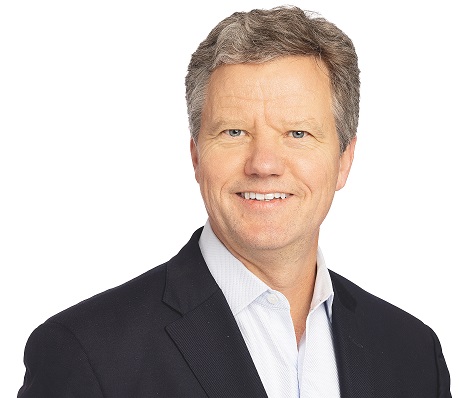Family offices are increasingly investing in oil and gas, and some industry analysts and executives say their presence may offset some of the macro deficit created when generalist investors fled the E&P space.
A decade of dismal returns coupled with a rising tide of anti-fossil fuel sentiment drove shareholders away from the sector in recent years. But private family offices may be less distracted by the sector’s history, especially as many large producers – flush with free cash flow – are now returning record cash to investors.
Dallas-based private equity firm Pearl Energy Investments closed a $705 million fund in May to target oil and gas opportunities with heavy participation from unnamed family offices.
PW Consortium, a private investor group largely led by family offices, acquired Wyoming natural gas producer PureWest Energy in a late May cash deal worth $1.84 billion. The buyer entity consisted of A.G. Hill Partners, Cain Capital, Eaglebine Capital Partners, Fortress Investment Group, HF Capital, Petro-Hunt and Wincoram Asset Management.

Family offices were attracted to the investment opportunity in part because of its excellent assets with a large portion of its production hedged over the medium term, said Joseph O’Brien, president and CEO of A.G. Hill Partners, a family office that manages the wealth of Al Hill Jr., the grandson of legendary oil tycoon H.L. Hunt.
“We always like to collaborate with other like-minded investors. A.G. Hill Partners, by nature, collaborates with others,” O’Brien said, explaining that in addition to sharing risk, collaboration brings additional creativity and talent to the boardroom.
He said the other family offices in the new PureWest consortium are also “sophisticated energy investors,” and he said he expects other energy-focused consortiums to form “out of necessity, just to pool enough capital” to meet the sector’s sizable capital demands.

Joe Flack, an attorney at Jackson Walker who worked on the deal for Wincoram, said the family offices were attracted to the consortium for its ability to share risk. The new consortium is an example of family offices’ greater interest in oil and gas investing.
“I think they’re interested in producing assets because they have consistent return relative to other assets they would invest in,” Flack said, adding that family offices are using sophisticated financial devices to manage risk and are investing for longer terms than private equity does.
Oil and gas producers may source 12% of their capital from family offices during the next year, according to a Haynes Boone survey of energy executives released in April. This was the survey’s greatest increase in expected capital sources; in a survey six months earlier, respondents expected family offices to account for 7% of their capital.
Kraig Grahmann, a partner at Haynes Boone, said family offices are filling part of a newly created void.
“When all of a sudden you saw private equity firms not being as willing to back oil and gas, and you saw commercial banks not be as willing to put as much capital in the space, it created an opening for family offices,” he said.
Kraig and many others said declining returns and ESG concerns were the main drivers pushing investors away from oil and gas. He said private equity firms and publically traded companies can have constituencies that “are very focused on ESG concerns and whether or not you're putting … their money into oil and gas.” Many family offices have fewer ESG concerns and are seen to be willing to wait longer for returns.
Private equity pulled back from oil and gas investing when the landscape turned unfavorable to their model, according to Keith Behrens, a managing director of Stephens, a financial services firm based in New York. As the shale boom began to ebb, private equity portfolio companies could no longer drill a few promising wells and find a public buyer in the “drill and flip” model.
That derailed private equity’s fundraising cycle and hindered their ability to circle back to investors for new investments.
Others said many traditional investors are still sitting out because they were so turned off by the massive capital destruction caused by rampant E&P overspending and tanking commodity prices.
But Mike Vlasic, whose family office has invested profitably in oil and gas for decades, said most people aren’t looking at the oil and gas boom-bust cycles in the right way. While many companies faced bankruptcy during the busts, the cycles also showed the industry’s resilience. Steep declines in oil and gas prices were blows many other industries probably could not have endured, he told Hart Energy.

Vlasic’s family earned its wealth – and household-name status – in the pickle business. The Vlasics turned to wealth building with a family office after selling the business in 1978.
Vlasic said oil and gas has been a profitable part of his family office portfolio since the late 1980s, and he sees more family offices starting to realize the industry’s potential.
“It’s too big to ignore,” he said. “The oil and gas industry in this country is extremely sophisticated, has tons of ingenuity and has thrived and survived in a variety of market conditions that other industries would not.”
Among one of the Vlasics’ early partners was Frank Lodzinski of Earthstone Energy who, now at age 74, is executive chairman of the Permian Basin pure play.
Lodzinski said family offices are being won over by management teams’ track records or by showing more responsible business practices in the aftermath of profligate spending and down cycles.
“The industry has shown greater discipline than it has in the past in terms of controlling its leverage and developing free cash flow that it uses for returns or for growth,” he said. “The discipline has offset some of the fears of volatility and massive commodity price swings.”

Analysts and executives said the family offices’ growing presence brings E&P companies many long-term investors, but their investment is unlikely to meet all of the industry’s capital demands. Many described the family offices as wanting high returns while keeping a low profile.
As many talked up family offices’ increasing presence as positive, one senior investment banking analyst, who asked to remain confidential, sees some pitfalls. The analyst works with family offices and said many don’t have the internal expertise to evaluate oil and gas business plans and geology to make sound decisions in these investments. He spoke on the condition his name not be used in order to offer a candid assessment.
That was not a concern for Dallas broker Michael Mitchell, senior management director of Mitchell Energy Advisors. He said if family offices need petroleum expertise, they can outsource it.
Family offices that invest in E&P companies without a private equity team save themselves from paying the firms’ management and carried interest fees, Mitchell said.
“I think we will continue to see family offices moving in to fill the gap based on improving industry returns as a result of renewed capital discipline by oil and gas producers,” he said.
Recommended Reading
Oil Prices Extend Losses Global Trade War, Recession Fears
2025-04-06 - Investment bank JPMorgan said it now sees a 60% chance of a global economic recession by year-end, up from 40% previously.
WhiteWater-Led NatGas Pipeline Traverse Reaches FID
2025-04-04 - The Traverse natural gas pipeline JV project will give owners optionality along the Gulf Coast.
DOE Identifies 16 Sites for Rapid AI Data Center Growth
2025-04-04 - The Department of Energy is requesting details on potential development approaches to establish AI infrastructure at select sites.
Energy Transition in Motion (Week of April 4, 2025)
2025-04-04 - Here is a look at some of this week’s renewable energy news, including Maverick Metals securing funding to accelerate commercialization of proprietary critical metals recovery technology.
Acquisitive Public Minerals, Royalty Firms Shift to Organic Growth
2025-04-04 - Building diverse streams of revenue is a key part of growth strategy, executives tell Oil and Gas Investor.
Comments
Add new comment
This conversation is moderated according to Hart Energy community rules. Please read the rules before joining the discussion. If you’re experiencing any technical problems, please contact our customer care team.




